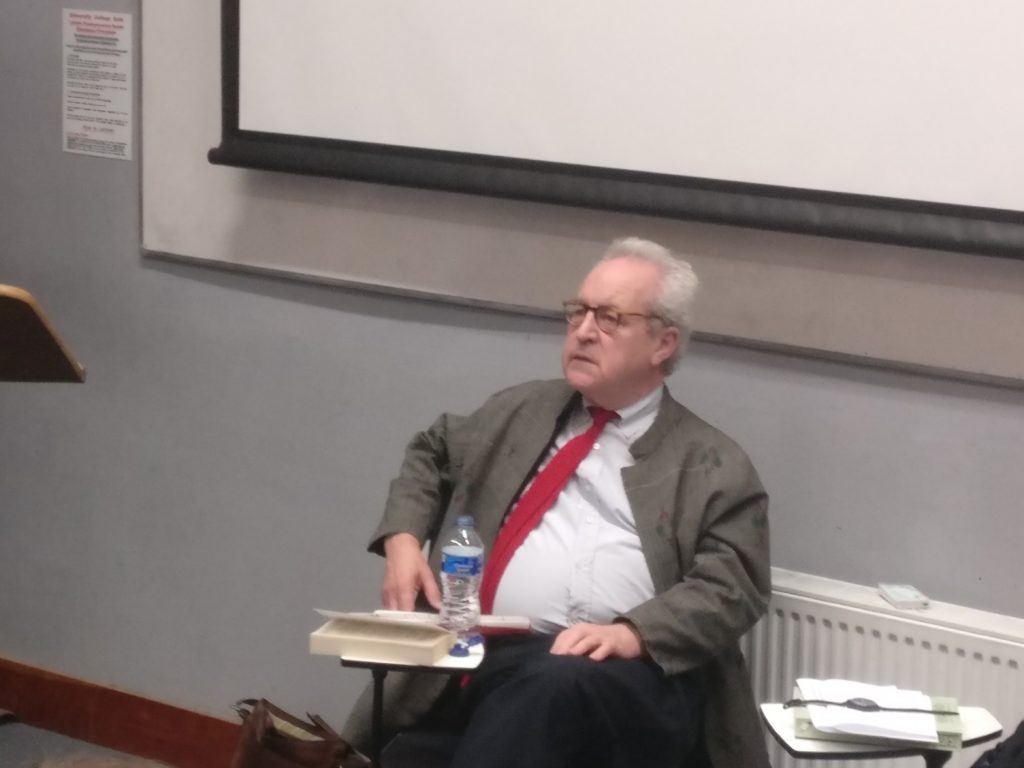MA student Molly Twomey shares seven “nuggets of wisdom” she learned from John Banville’s recent master class at UCC.
When John Banville came to UCC this week to read for the School of English Reading Series, he also spoke to the MA in creative writing class about writing and his process. Banville is the author of some 20 works of fiction including the Booker Prize-winning novel, The Sea.
I recently read The Sea, which Seamus Heaney called “munificent in its own mischievous, mortally serious way.” I was entranced by the protagonist, caught up in his imperfections and self-torture. I could not wait to meet the man behind the novel, to pick his brain and learn from such a prolific writer.
After listening to Banville for a total of three hours, there were several nuggets of wisdom that I took to store in my writer’s box. But they’re too nourishing to keep locked away and I want to share them.
- All writing is creative. It doesn’t matter if it is an article, an instruction manual or a science book. Every time you write something, you are creating, and it is your interpretation of reality through language.
- Literature is not escapism. It is escape into the world, not out of the world; it is an escape into truth. It brings us into recognition of how extraordinary we are in our ordinariness. It is a mistake to use art to escape from the fact of being alive. The value of literature is that it intensifies the sense of what it is to be alive. Art reawakens us, the deadened part of us, to what it is to be a human being.
- The sentence is the greatest invention of humankind and the basis of civilisation. Through the sentence we declare ourselves to be. We declare love, war; our laws are graven in sentences. We go to the work of art to experience a finished object, one that has a beginning, middle and an end. Nothing else in life has this quality. We don’t remember our birth and will not experience our death; all we have is the confusion in the middle. To write a sentence is to be in an unhuman place, writing about the human place. We string sentences together, they make an object, which we put into the world and by some peculiar process other human beings find themselves in sympathy, in empathy with it. That is gloriously rewarding for the writer.
- Allow your artistic ability to be directed by instinct, not rationality. Trust the sentence to guide you.
- All works of art are failures. Fail, fail again, fail better as Beckett wrote. What is important is the quality of the failure.
- Writing doesn’t get easier as one becomes more experienced, but it doesn’t become more interesting. Beware of facility. If one finds oneself at the stage where one can say anything, express anything, then the danger is that this is exactly what one will do; say anything, any old thing. Language has a tendency to turn around and bite you on the bum. Beware of imagining you’re in control and that language is your servant.
- Your thoughts are not original but that does not mean they’re not valuable, if you can find an original way of expressing them.

